I followed the alkaline diet for 7 days - here's what happened
When Kelly Ripa revealed that an alkaline cleanse had changed her life, I had to know more. Could this be the secret to her boundless energy and flawless bob? Since I've long had a life crush on Ripa and her tiny, impossibly sculpted arms, I set out to investigate by giving the diet a try for myself.
The buzz around the alkaline diet
Superfans claim the alkaline diet can change your biology, and Ripa's not the only celeb devotee — stars from Victoria Beckham to Gwyneth Paltrow and Elle MacPherson have reportedly embraced the fad over the years. Supporters say it can have a positive impact on any number of ailments, including arthritis, joint pain, kidney stones, heart problems and even cancer.
While there’s no hard evidence this diet does any of those things, the experts I spoke to didn't have a problem with people trying it since it essentially comes down to "eating less junk." When I consulted my doctor, she frown-nodded as I explained what foods it would entail eating and cutting out. "Sounds pretty healthy," she said with a shrug.

How does the alkaline diet work?
The explanation behind the diet makes very little scientific sense, but here's my best approximation, since everyone you talk to says something a little bit different. The premise is that our blood’s PH level is naturally slightly alkaline (perfectly neutral would be 7.0, and our blood stays around 7.4). Proponents of the diet believe your body is happier in a more alkaline state — and that food can change this balance.
Foods fall on a scale between alkaline-promoting and acid-producing — fresh fruits and vegetables, for example, are on the alkaline end, while coffee, refined sugars and flours, white bread, cheese and meats are in the acid category. (You can find any number of charts online with these categorizations, though there is some variation.)
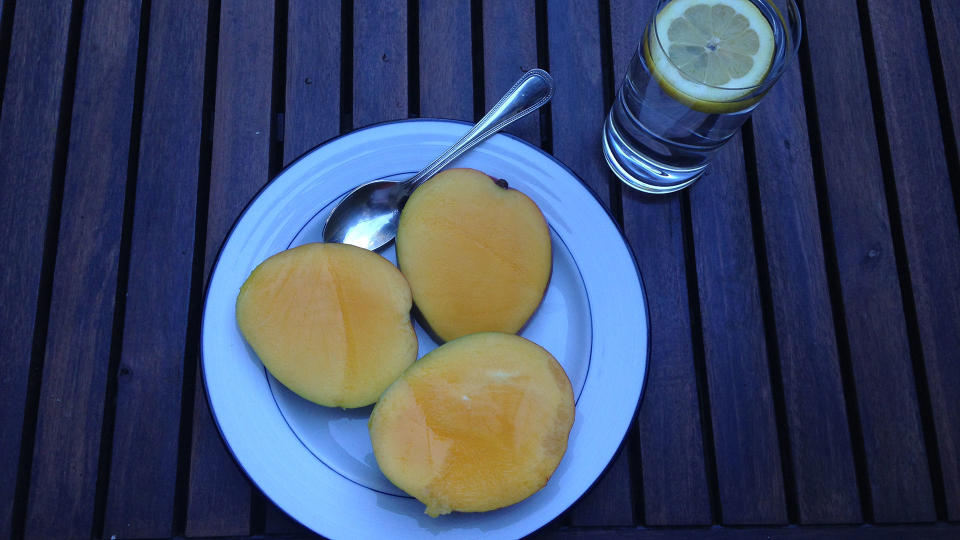
Fans of the diet recommend eating alkaline-promoting foods and cutting out the acid-producing ones, arguing that if your body has to work less to maintain its PH balance, it’s easier on all your organs and systems, and you can reap loads of health benefits.
The fact is (paging your high school biology teacher), you can’t really change your blood PH. And no matter what you eat, your body is going to keep your PH balanced within this range, because if it didn't, you would die. So while the experts I interviewed say the supposed rationale behind the diet doesn't hold water, there's almost no risk in trying it, since the recommended foods are just foods that are already good for you.
"The reason behind it really makes no difference because it's a health-promoting eating plan," TODAY's diet and nutrition editor Madelyn Fernstrom told me. "But to say that the alkaline diet specifically is altering your body function because of a change in your body PH? That's not something you can do."
Related: Diets that rank high in U.S. News & World Report's list focus on including foods, rather than excluding them, and add extra health benefits.
The experiment: eating alkaline-friendly foods
Armed with a chart I printed off the Internet (science!) and a box of PH strips I ordered to test my saliva (which has a different PH level than your blood but is also believed to be healthier if it's more alkaline — see? The whole thing gets very confusing), I set out to try the diet for seven days.
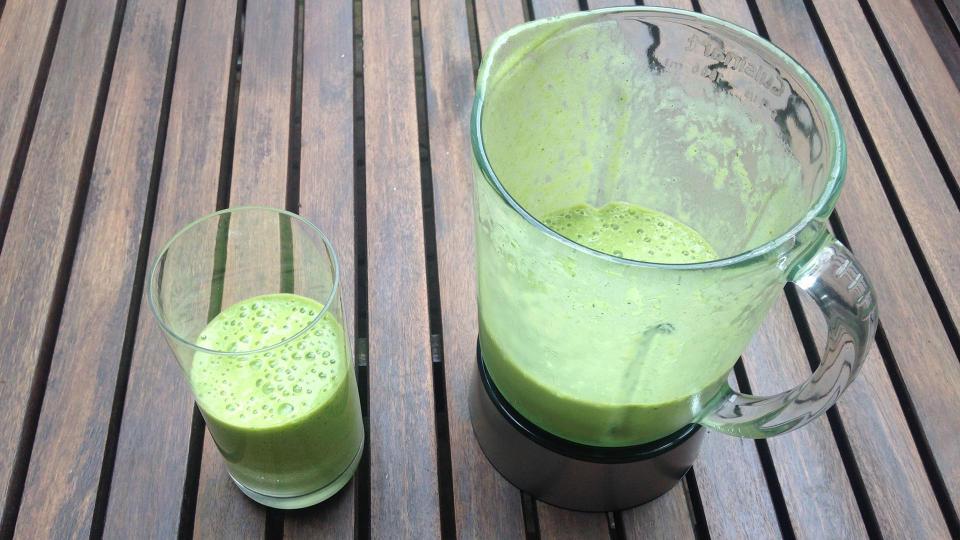
For one slightly depressing week, I cut out all the foods on the “acid” side of the chart and limited my meals to foods on the alkaline side. I originally tried to start the diet while headed to a wedding out of town, but had to start over because I failed almost immediately. It turns out it’s very tough to stick to these restrictions on the road — try finding an airport salad or an entrée at a Midwestern Mexican restaurant that doesn’t come covered in cheese.
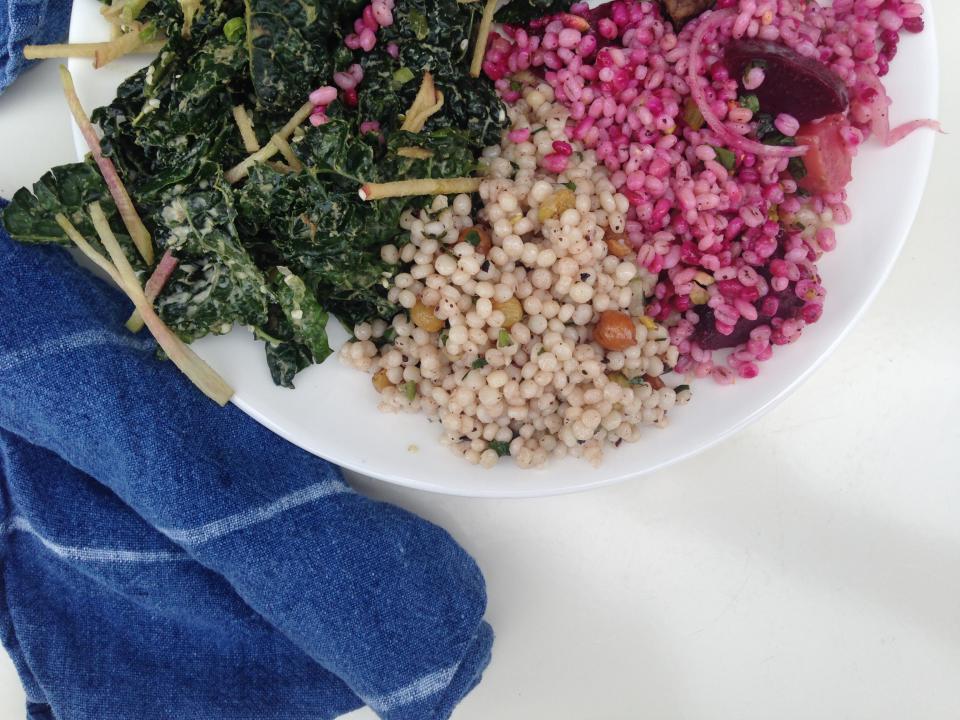
But when I was back in my own kitchen or willing to shell out a little extra cash at New York's array of overpriced health food restaurants, the diet was easier to follow. Smoothies were an easy solution, as were salads. After cutting out meat, I found myself forming a special bond with tofu. I even developed a fondness for quinoa and lentils, which I had (mistakenly!) shunned in the past. And I fully fell in love with my first-ever bowl of chia pudding, the kind of surprisingly delightful eating experience that made me feel Gwyneth-levels of radiant.
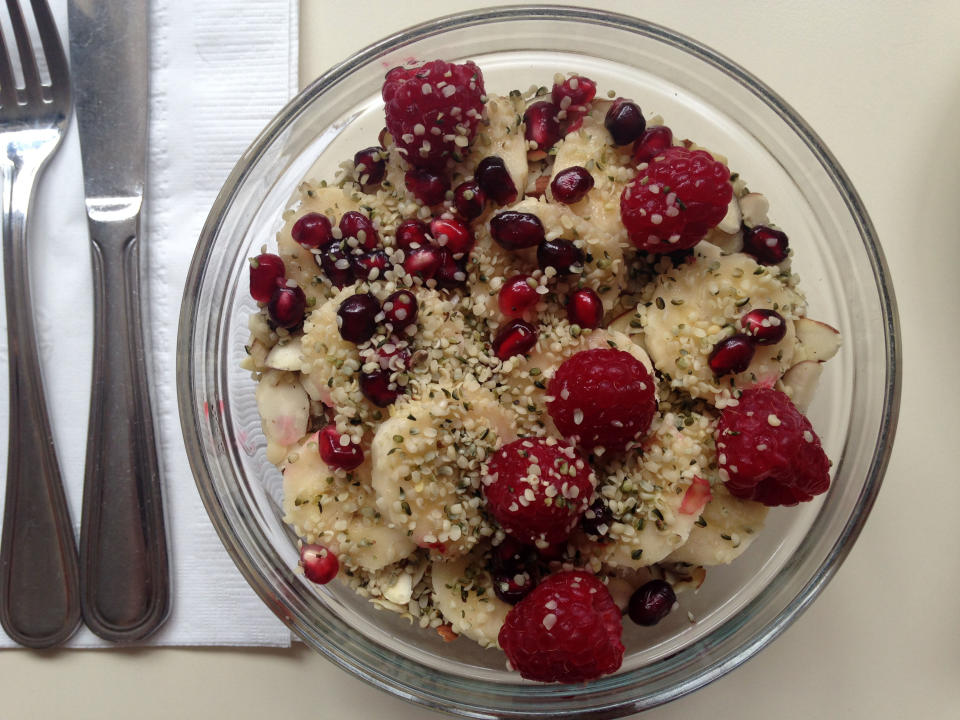
I spit-tested my PH twice a day, morning and night, and measured it against the guide on the back of the box. On days when I really loaded up on fresh fruits, I did notice it shift to be slightly more alkaline, but overall it stayed within a pretty constant range close to neutral.
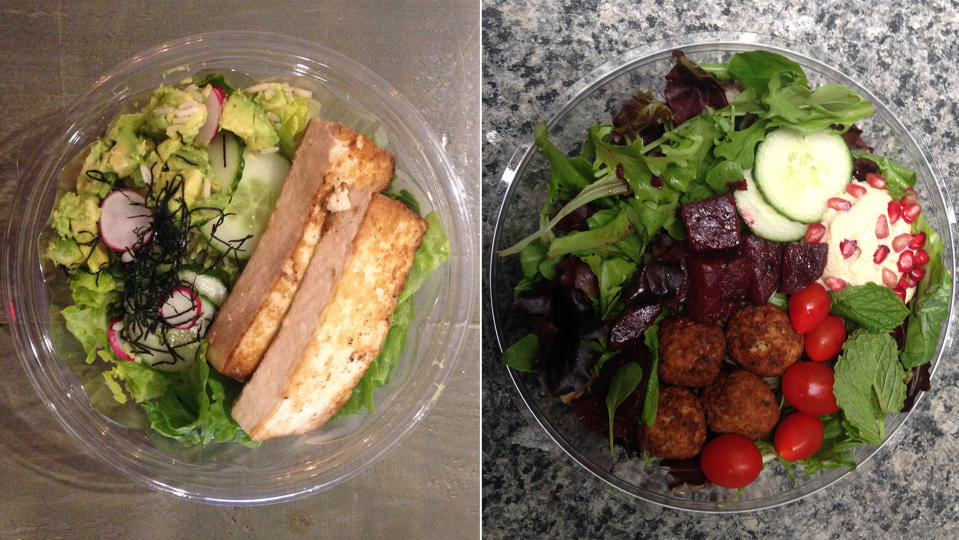
The verdict
On days when I didn’t have time to really prepare a good breakfast, I struggled to find good options, leaving me ravenous by the time lunch rolled around. This diet is feasible if you are good at planning ahead, and a little more challenging if you’re like me and are used to snagging a snack at Starbucks on the way into work.
I weighed myself on a daily basis and was pretty surprised to see the numbers barely budge. After a week, though, I was down two pounds — which is a pretty standard amount of weight loss when following a healthy diet. So it's not some kind of miracle that will transform you into a swimsuit model overnight, but it is a good rubric to use if you're looking to clean up your diet.
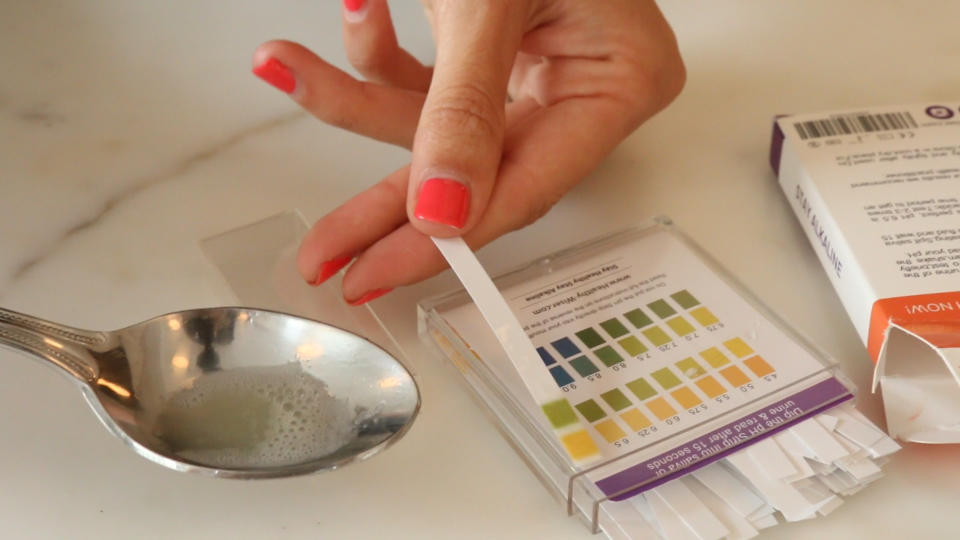
My main problems were eating on the go, boredom and the psychic pain of bypassing the steaming tub of macaroni and cheese in the cafeteria at lunch. After five days of following the diet as strictly as possible, I did “cheat” by having my avocado on a piece of whole-wheat toast, which tasted like heaven after days of bread deprivation.
Plus, I hated being that person anytime I shared a meal with friends, having to constantly explain why I couldn't eat this or that. Sometimes it's just easier to shut up and eat the cheese than explain for the millionth time that you're conducting a bizarre Kelly Ripa-inspired food experiment "for work." Plus, cheese tastes really good. Have you had cheese lately? Let's be real. It's the best.
I did feel better physically during the experiment, and completely bloat-free, which is something I realized more after I went off of it and resumed my pre-diet levels of pasta and caffeine. I didn't notice any of the short-term health benefits I'd read about, like shinier hair or better skin. But the highly restrictive nature of the diet became really onerous, and because it was so difficult, it was hard for me to maintain — the battle to find meals that fit the bill often left me feeling low energy.
Related: Don’t go at it alone, leave room for treats and watch out for ‘red flag’ words.
While I have no desire to keep a strictly alkaline diet going forward — please see my above thoughts about cheese — it was a nice jolt to realize how much better it feels not to be weighed down by junk food, and just how good fresh fruits and veggies are, and are for you. If you're looking to try the alkaline diet, I say go for it — just remember it's not a magic bullet.
"If you want to do it, it's certainly not going to harm you; it's probably going to be healthful," Fernstrom said. "It's a win-win, but not for the reasons people think. This is one case where the diet plan makes no biological sense but is still good for you."